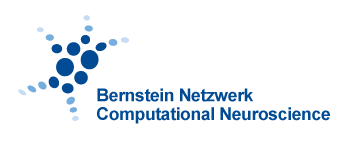Praktika
CaCTüS Internship
The sciences of biological and artificial intelligence are rapidly growing research fields that need enthusiastic minds with a keen interest in solving challenging questions. The Max Planck Institutes for Biological Cybernetics and Intelligent Systems and the Tübingen AI Center offer up to 10 students at the Bachelor or Master level paid three-months internships during the summer of 2024. Successful applicants will work with top-level scientists on research projects spanning machine learning, electrical engineering, theoretical neuroscience, behavioral experiments and data analysis. The CaCTüS Internship is aimed at young scientists who are held back by personal, financial, regional or societal constraints to help them develop their research careers and gain access to first-class education. The programme is designed to foster inclusion, diversity, equity and access to excellent scientific facilities. We specifically encourage applications from students living in low- and middle-income countries which are currently underrepresented in our research community.
Who can apply?
The CaCTüS Internship specifically addresses motivated students who are constrained by personal, financial, regional or societal issues that negatively affect their future education.
Ort
Biological Cybernetics and Intelligent Systems and the Tübingen AI Center
Tübingen, Germany
Kontakt
Coordination Office
Max Planck Institute for Biological Cybernetics
cactus-internship@tuebingen.mpg.de
BCCN Berlin Pre-Doc Internship Program
In this second round of our Pre-Doc Internship Program, we want to encourage and support especially talented students from developing countries in the transition from their master studies to their doctoral studies. Interns will have the chance to come to Berlin, Germany, for a paid, six-month Pre-Doc internship. The internship program provides access to first-class scientific labs and institutions, state-of-the-art research, and scientific network in one of Germany’s leading computational neuroscience research hubs.
Who can apply?
Master students in their final stage or after graduation.
Ort
BCCN Berlin
Berlin, Germany
Kontakt
Lisa Velenosi
graduateprograms@bccn-berlin.de
Singularity Detection and Mitigation in Analytic Integrators
In this project, you will extend ODE-toolbox to detect the potential occurrence of singularities in the generated propagator matrices, and mitigate this problem by computing a set of propagator matrices and the conditions under which each is valid. (A simple singularity detection is implemented since the latest version but could be improved.) An application programming interface (API) should be developed that supports returning the new data structures. Additional unit tests should be provided to demonstrate the correctness of the result.
Who can apply?
Master students in the fields of computer science, maths, or related fields.
Ort
Simulation Lab Neuroscience
Forschungszentrum Jülich
Kontakt
Charl Linssen
c.linssen@fz-juelich.de
Computational Systems Neuroscience
The department of Computational Systems Neuroscience welcomes undergrad students from the fields of Biology, Neuroscience, Computer Science, Physics, or Engineering to participate in their research. They are offering projects in computational and experimental neuroscience, including modeling studies, studies in animal behavior and in neurophysiology.
Required skills: depending on project
Ort
Universität Köln
Kontakt
Abteilungsleitung
Martin Nawrot
mnawrot@uni-koeln.de
Visual and olfactory systems
The Department of Sensory and Sensorimotor Systems is open for students for internships and theses in their labs.
Research foci are visual and olfactory functions in the human and animal brain and their elicited behavioral responses, and other related topics in brain science. Research methods include visual psychophysics, zebrafish behavior and neuroscience, computational modeling, data analysis, human event related potential measurements, fMRI and eye tracking.
Eligibility: depending on requirements of individual training program
Required skills: depending on project
Ort
Max-Planck-Institut für biologische Kybernetik Tübingen
Kontakt
Abteilungsleitung
Li Zhaoping
zhaoping.li.admin@tuebingen.mpg.de
Cognitive and neural mechanisms underlying learning and memory
The computational neuroscience group researches on the cognitive and neural mechanisms underlying learning and memory using computational methods. Topics for Bachelor/Master theses are available and the lab is open for collaborations, offering expertise on episodic memory, spatial navigation, hippocampus, neural networks, and reinforcement learning. The main language of communication is English.
Skills to be learned: reinforcement learning, neural networks, parallel computing
Required skills: programming
Ort
Ruhr-Universität Bochum
Kontakt
Gruppenleiter
Sen Cheng
sen.cheng@rub.de
High performance computing (HPC)
The Simulation and Data Lab Neuroscience offers students an insight into the world of High-Performance Computing (HPC) and how HPC can be efficiently used for neuroscience research, from modelling and simulation to data analysis and neuroimaging. Visiting students should have some programming skills, e.g. in C, C++ or Python, to be able to use their visit for a (first) project with HPC and/or data resources.
Skills to be learned: high-performance computing, data analysis, visualisation technology for neuroscience
Required skills: programming
Ort
Jülich Supercomputing Centre (JSC)
Kontakt
Wiss. Koordination
Maren Frings
slns@fz-juelich.de
Abschlussarbeiten
A computational model of pulvino-cortical contributions to large-scale neural dynamics and behavior
The pulvinar is an important yet understudied thalamic nucleus that is involved in multiple cognitive and sensorimotor computations. Although there have been recent efforts to characterize the function of the pulvinar, several open questions remain. For example, it is known that interhemispheric interactions at the level of the cerebral cortex provide robustness to perturbations during sensorimotor transformations. The corresponding cortical areas are innervated by the thalamus, but whether the thalamus plays any role in such interhemispheric coordination remains unknown. The goal of this computational project is to identify thalamic contributions to interhemispheric interactions and behavior via simulation of large-scale network dynamics in connection to pulvinar and cortical recordings in the awake macaque. The project will be co-supervised by Dr. Igor Kagan, German Primate Center (DPZ).
Required skills: programming experience in Python or MATLAB, previous exposure to systems and computational neuroscience methods, including simulating differential equations and/or analysis of neural datasets
Background: computational neuroscience, physics, computer science, data science
Ort
Bernstein Center Göttingen
Göttingen Campus Institute of Dynamics of Biological Networks (CIDBN)
Kontakt
Dr. Jorge Jaramillo
jorge.jaramillo@uni-goettingen.de
+49 152 051 712 32
Directional information in hippocampal place cells populations
Hippocampal place cells not only decode the current position but also the running direction of an animal. The interconnectedness between those codes is less explored but of fundamental importance for the understanding of hippocampal function in navigation and memory processes. This project will apply and refine analysis tools for extracellularly recorded spiking data obtained during free foraging. Students will be exposed to classic methods and literature on hippocampal in-vivo physiology and state-of-the art machine learning methods.
Eligibility: Student must be enrolled at University of Freiburg
Required skills: Experience in Python and statistical methods
Background: Neurobiology
Ort
Bernstein Center Freiburg, Universität Freiburg
Kontakt
Bernstein Koordinationsstelle
bernstein.network@fz-juelich.de




